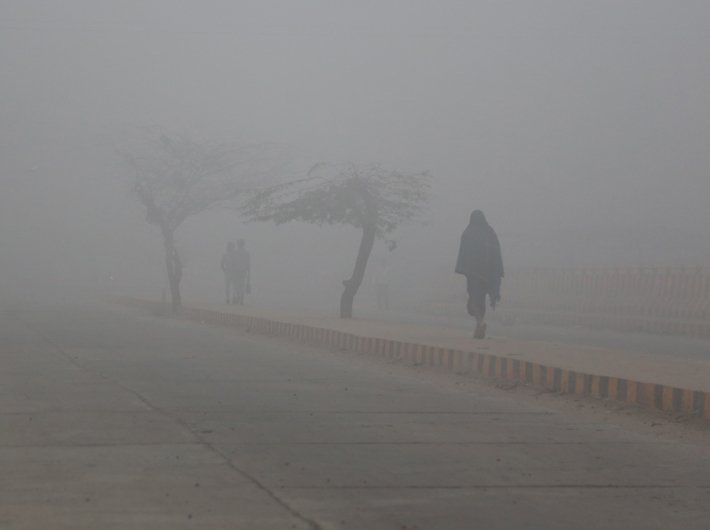Satellite imagery shows South Asia has the largest proportion of babies at risk: Unicef report
Air pollution potentially affects children’s brains, according to a new Unicef report which also points out that the majority of children at risk are in South Asia.
The Unicef analysis focusing on very young children under the age of one has found that nearly 17 million babies live in areas where outdoor air pollution is at least six times higher than international limits – potentially putting their brain development at risk simply because of the air they breathe. The vast majority of these babies – over 12 million – are in South Asia.
Many of these children are already among the most disadvantaged. Children growing up in urban slums are already at great risk of multiple environmental threats – from lack of clean water and sanitation to risk of infectious disease. Adding high levels of air pollution compounds the risks these children face.
The report, titled ‘Danger in the Air: How air pollution can affect brain development in young children’, notes that breathing in particulate air pollution can damage brain tissue and undermine cognitive development – with lifelong implications and setbacks.
Air pollution potentially affects children’s brains through several mechanisms. First, particulate matter can cause neuro-inflammation by damaging the blood-brain barrier – a thin, delicate membrane that protects the brain from toxic substances. Ultrafine pollution particles (particulate matter that is equal or less than 2.5 microns in diameter) pose an especially high risk because they can more easily enter the blood stream and travel through the body to the brain. In older people, the breakdown of the blood-brain barrier has been strongly linked with Alzheimer’s and Parkinson’s disease. The dosage of toxic chemicals required to damage the growing brain in the first stages of life is much lower than that which would cause damage to an adult brain.
Second, specific air pollution particles, such as magnetite, are so small that they can enter the body through the olfactory nerve and the gut. Magnetite is very common in urban outdoor air pollution, and a recent study found that it was considerably more present in brains of people living in areas where urban air pollution is high. Magnetite nanoparticles are highly toxic to the brain due to their magnetic charge and their ability to help create oxidative stress – which is often the cause of neurodegenerative diseases.
Third, several studies also show that polycyclic aromatic hydrocarbons (PAHs), a specific class of pollutants formed from fossil fuel combustion and commonly found in areas of high automobile traffic, contribute to a loss of or damage to white matter in the brain. White matter contains nerve fibres that are critical in helping neurons communicate across different parts of the brain. As children grow and experience the world around them, well-functioning neural connections provide the foundation for continued learning and development.
“Not only do pollutants harm babies’ developing lungs – they can permanently damage their developing brains – and, thus, their futures,” said Unicef executive director Anthony Lake. “Protecting children from air pollution not only benefits children. It is also benefits their societies – realized in reduced health care costs, increased productivity and a safer, cleaner environment for everyone.”
Satellite imagery reveals that South Asia has the largest proportion of babies living in the worst-affected areas, with 12.2 million babies residing where outdoor air pollution exceeds six times international limits set by the World Health Organization. The East Asia and Pacific region is home to some 4.3 million babies living in areas that exceed six times the limit.
The paper shows that air pollution, like inadequate nutrition and stimulation, and exposure to violence during the critical first 1,000 days of life, can impact children’s early childhood development by affecting their growing brains.
